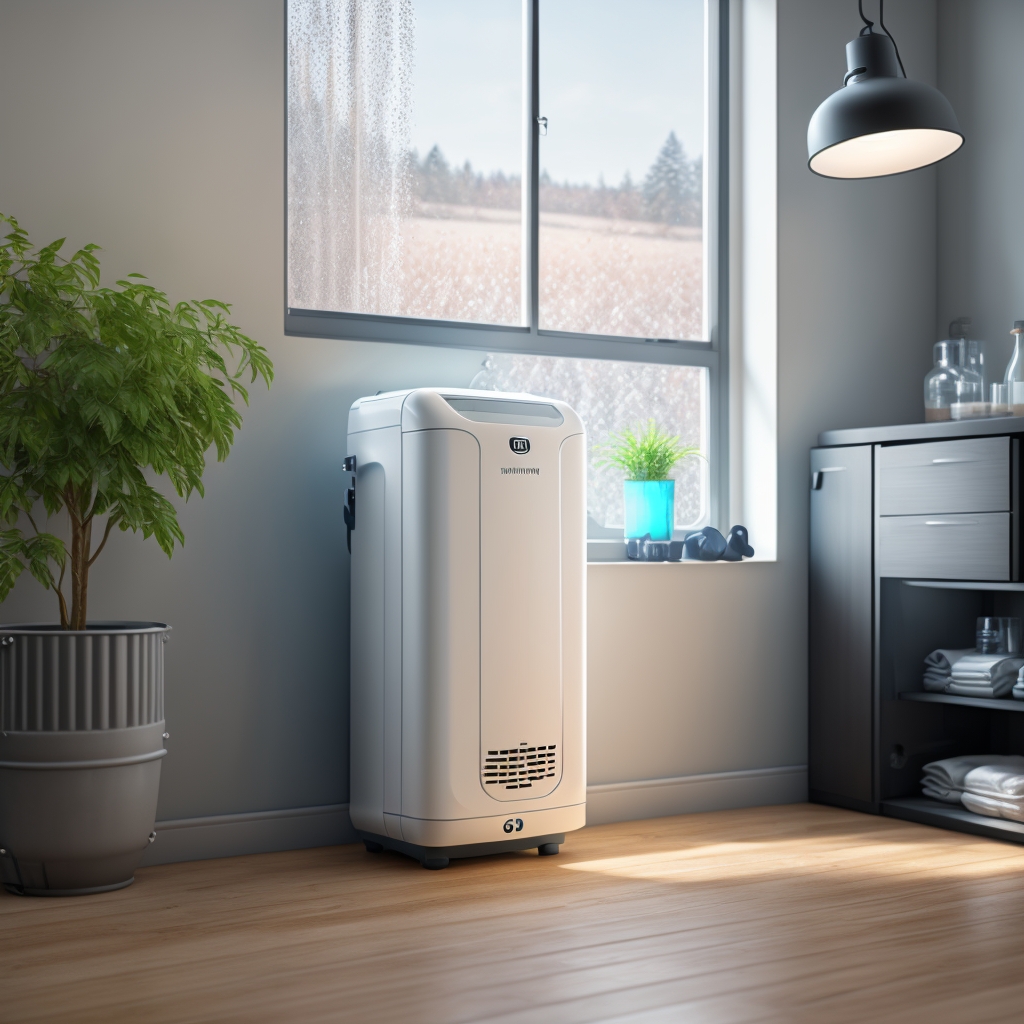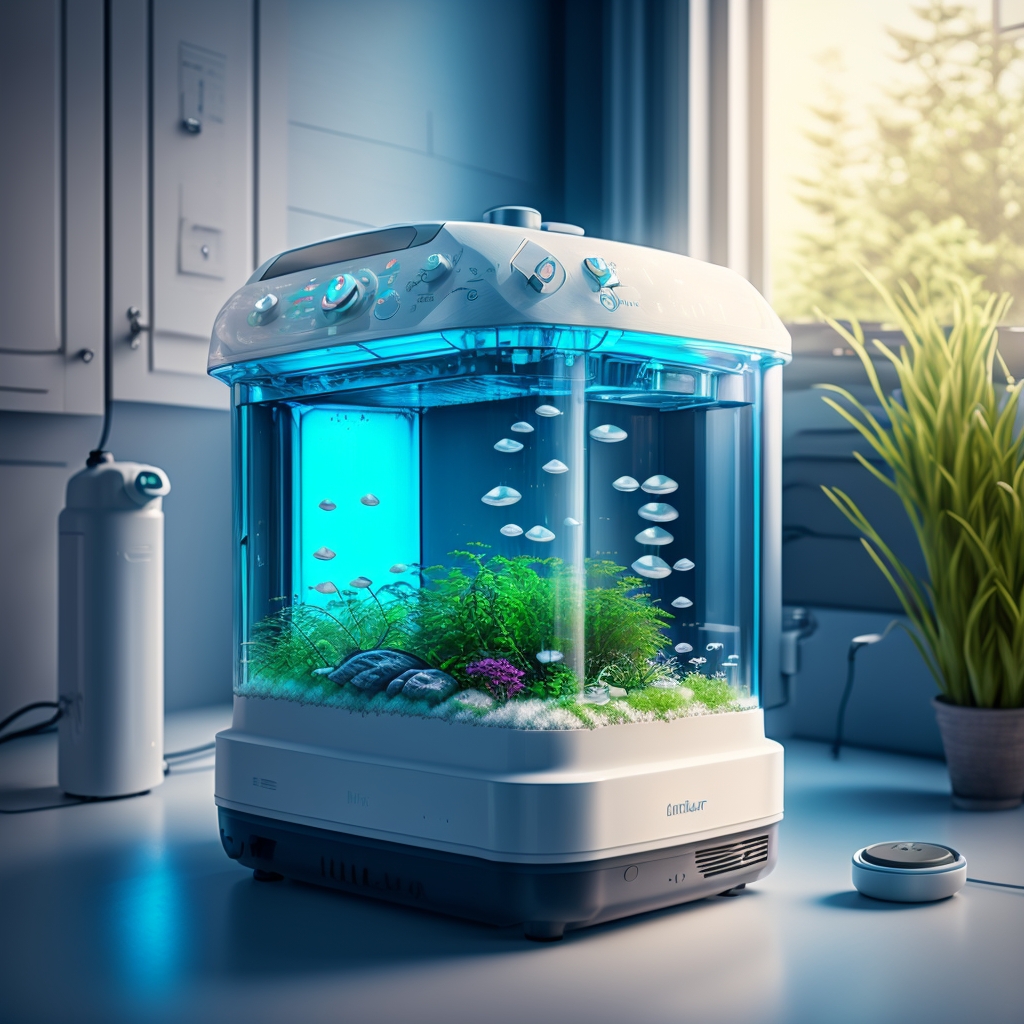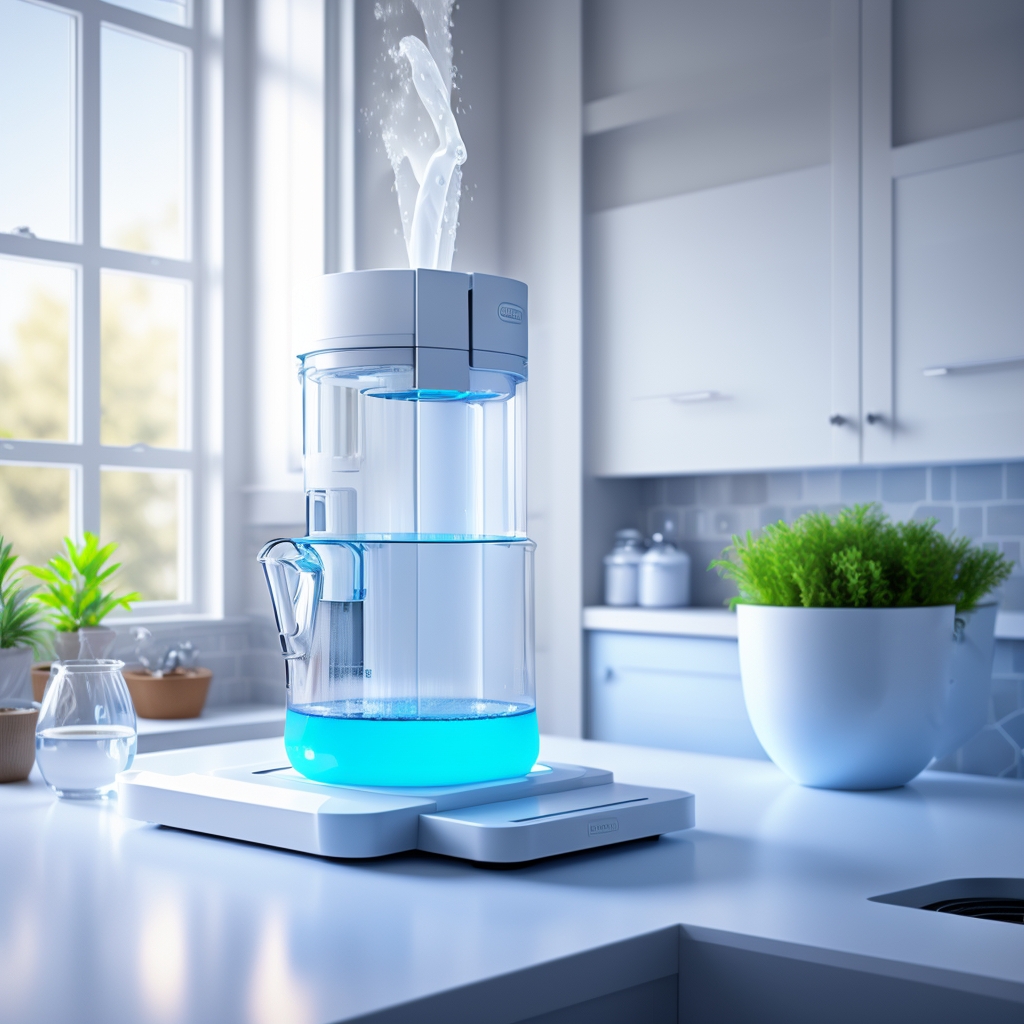“Why You Should Never Drink Water from a Dehumidifier: Facts Revealed”

The majority of individuals tend to be conscious about their health. They remain cautious about their food consumption and the type of beverages they drink. Water has traditionally been seen as the most beneficial beverage as it caters to all aspects of health. Nonetheless, it is imperative to understand that not every kind of water is safe for drinking. An often misunderstood concept pertains to the idea of consuming water directly from a dehumidifier without any repercussions. The following surprising revelations aim to dissuade you from ever wanting to sip unfiltered dehumidifier water again.
The Functions of Dehumidifiers Explored
A dehumidifier proficiently extracts moisture from regions characterized by excessive humidity, transferring it into a drainage basin or receptacle. This could accumulate up to forty gallons of moisture-turned-liquid.
Mostly, draining is conducted on a regular basis or whenever the quantity of collected liquid hits maximum capacity. This method of water collection contributes to drier atmospheric conditions which facilitate better respiration, and inhibits the growth of mold in damp spots.
Dehumidifiers excel at reducing moisture from highly humid settings by incessantly drawing out humidity via filters. Commonly, these gadgets are kept at around forty degrees Fahrenheit, but they can be manually set to lower temperatures to optimize their efficiency when needed. You can often find dehumidifiers in areas like labs, homes, and other locations that necessitate the removal of humidity.
Further Relevant Aspects to Consider
An interesting side note is the multi-faceted role of a dehumidifier as an energy efficiency tool. Apart from regulating humidity, it also helps in maintaining an optimal room temperature, reducing the burden on air conditioning systems. This results in substantial energy savings, making it environmentally friendly.
Additionally, the functionality of dehumidifiers extends to ensuring the durability of belongings in humid-prone areas. By maintaining a dry environment, it prevents damp-induced damage to items like books, electronics and clothing.
Thus, while dehumidifiers form a critical component of creating a comfortable environment, drinking the collected water directly should be avoided due to potential cleanliness and health concerns.
Why You Should Avoid Drinking Water from Your Dehumidifier: Uncover the Reasons!

Indeed, dehumidifiers have the capability to draw moisture from the atmosphere, turning it into water. However, it is generally suggested by health professionals to refrain from consuming this seemingly fresh water due to the presence of harmful substances and contaminants.
1) Bacterial Concerns: The water collected in dehumidifiers likely carries bacteria, given that drain basins often accumulate grime and dirt. To ensure the water’s purity, filtering the liquid with chemicals or boiling it is required – yet, this contradicts the purpose of using dehumidifiers as an eco-friendly method of reducing humidity. On that note, it is more advisable to consume distilled water, processed through standard water purification methods, instead of dehumidifier water which could potentially contain dangerous compounds such as mold and toxins.
2) Presence of Dissolved Solids: Despite appearing efficient, the filtration system of a dehumidifier does not guarantee the complete removal of contaminants. The reason being, some particles are microscopic and bypass the filter, resulting in water dense with dissolved solids. Eliminating these solids requires extensive boiling at low heat for an extended period, which could alter the water’s flavor. Therefore, it’s suggested to either thoroughly boil the dehumidifier water prior to consumption or opt for tap water, which typically doesn’t contain such solids.
3) Additional Dangers: The atmospheric air in rooms occasionally harbors a range of contaminants such as dust and pollen; these could trickle into the dehumidifier’s drain pan and mix with the collected liquid as condensation occurs. Though the accumulated water may appear clear, it’s likely to contain invisible pollutants. Unfortunately, the consumption of these unseen contaminants can have detrimental effects on health, potentially causing illness or even worse outcomes.
To further highlight the importance of this issue, it’s worth noting that improper handling of dehumidifier water can lead to numerous unforeseen health consequences. While it may seem economical and sustainable to use water from dehumidifiers, the potential myriad risks to health significantly outweigh the perceived benefits. It’s therefore advised to stick to trusted sources of potable water and leave dehumidifiers to their intended use – improving air quality by removing excess humidity.
“Unlock the Secret: Turn Dehumidifier Water into Safe Drinking Water!”

Worried about wasting precious water collected by your dehumidifier? Anxious that using it for other purposes may not work out? You could transform it into drinkable water instead. Detailed here are techniques that could potentially convert the extracted water from your dehumidifier into potable water:
1) Boiling: This is a simple and effective method to purify dehumidifier water. Boiling eradicates bacteria and harmful chemicals, rendering it safe for consumption following a few minutes of boiling. There is no need for an elaborate distillation system or store-bought bottled water as this process works efficiently. Heat the water collected in your dehumidifier basin until it begins to boil. If you have multiple devices, you could boil several basins at once for greater efficiency.
2) Distillation: The process of distillation entails boiling the water and extracting the resulting steam. When water turns to steam and then is cooled, it can be used for drinking. The process involves boiling water and allowing the water vapor to collect in a cool, enclosed glass or stainless steel container, which is then reverted back into its liquid state.
3) Reverse Osmosis: This process is often used in households to remove impurities from tap water. In reverse osmosis, water is boiled and then forced under pressure through a semi-permeable membrane to filter out impurities. The purified water is then collected in a holding tank for future use. It can be utilized with dehumidifier water and can filter out impurities down to one part per million or even less.
4) Dilution: Dehumidifier water can be diluted with filtered tap water in a 1:1 or 1:2 ratio to reduce impurities. However, be careful not to add too much tap water as it could increase the impurity content. Containers made of stainless steel, porcelain, or glass, which do not contribute their own impurities, are recommended.
5) Filtration: A suitable filtration system can filter out impurities from dehumidifier water before it is stored. Activated charcoal is a highly porous material with a large surface area that is quite effective at eliminating impurities during filtration.
6) Adding Minerals: Dehumidifier water is essentially distilled water and so lacks useful minerals. As a remedy, you can add necessary minerals, for example, by dissolving a teaspoon of sea salt in a gallon of the distilled water and stirring until thoroughly mixed.
Frequently Asked Questions:
Can dehumidifier water make you sick?
While dehumidifier water is not initially suitable for ingestion, ingesting it without proper treatment might lead to sickness due to the presence of impurities like bacteria and mold spores.
How do you sanitize a dehumidifier water bucket?
Cleanse a dehumidifier water bucket with bleach provided the unit is made of plastic and void of lead. This process is especially effective at removing organic materials such as mold and mildew.
